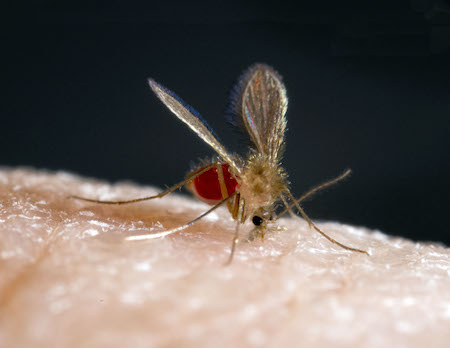Resumo
Definição
História e exame físico
Principais fatores diagnósticos
- presença de fatores de risco
- permanência prévia em área endêmica
- imunossupressão
- febre prolongada
- perda de peso
- lesões cutâneas ulcerativas
- vários nódulos cutâneos não ulcerativos
- inflamação destrutiva da mucosa
- esplenomegalia
- escurecimento da pele
Outros fatores diagnósticos
- fadiga
- tosse
- cefaleia
- enfraquecimento
- linfonodos aumentados
- hepatomegalia
- tratamento antileishmaniose prévio
- epistaxe
- dor abdominal
Fatores de risco
- alta exposição a picadas de flebotomíneo
- pobreza
- proximidade com um paciente com uma história de infecção
- proprietário de animais domésticos
- imunossupressão
Investigações diagnósticas
Primeiras investigações a serem solicitadas
- Hemograma completo
- testes da função hepática e ureia/creatinina
- gonadotrofina coriônica humana (hCG) sérica
Investigações a serem consideradas
- exame microscópico do espécime relevante
- cultura de sangue (camada leucoplaquetária) ou tecido
- reação em cadeia da polimerase
- sorologia
- intradermorreação para leishmaniose (teste cutâneo de Montenegro)
- teste para sorologia de HIV
Algoritmo de tratamento
leishmaniose cutânea (LC)
leishmaniose mucosa (LM)
leishmaniose visceral (LV)
leishmaniose dérmica pós-calazar (LDPC)
recidiva
Colaboradores
Autores
Naomi E. Aronson, MD
Professor of Medicine
Director, Infectious Diseases Division
Uniformed Services University of the Health Sciences
Bethesda
MD
Declarações
NEA receives federal grants to study leishmaniasis (received by NEA's institution USU), has given lectures on the topic of leishmaniasis at national and international meetings, and has a patent on biomarkers for leishmaniasis. NEA's institution USU has received royalties for her writing and editorial work for UpToDate. NEA is an unpaid member for the NIH/CDC/HIVMA guidelines group (the guideline is cited in this topic), and has chaired the IDSA/ASTMH guidelines (also cited in this topic). NEA is an author of a number of references cited in this topic. The views expressed in this topic are those of the authors and do not reflect the official policy of the Department of Army/Navy/Air Force, the Department of Defense, or the US Government.
Nathanial K. Copeland, MD, MTM&H
Assistant Professor of Medicine
Uniformed Services University of the Health Sciences
Bethesda
MD
Declarações
NKC is an author of a number of references cited in this topic. The views expressed in this topic are those of the authors and do not reflect the official policy of the Department of Army/Navy/Air Force, the Department of Defense, or the US Government.
Agradecimentos
Professor Naomi E. Aronson and Dr Nathanial K. Copeland would like to gratefully acknowledge Professor Richard Reithinger and Professor François Chappuis, previous contributors to this topic.
Declarações
RR and FC are authors of a number of references cited in this topic.
Revisores
Roberto Arenas, MD
Chief of the Mycology Section
Dr. Manuel Gea Gonzalez General Hospital
Mexico
Declarações
RA is the author of an article cited in this topic.
Créditos aos pareceristas
Os tópicos do BMJ Best Practice são constantemente atualizados, seguindo os desenvolvimentos das evidências e das diretrizes. Os pareceristas aqui listados revisaram o conteúdo pelo menos uma vez durante a história do tópico.
Declarações
As afiliações e declarações dos pareceristas referem--se ao momento da revisão.
Referências
Principais artigos
Aronson N, Herwaldt BL, Libman M, et al. Diagnosis and treatment of leishmaniasis: clinical practice guidelines by the Infectious Diseases Society of America (IDSA) and the American Society of Tropical Medicine and Hygiene (ASTMH). Clin Infect Dis. 2016 Dec 15;63(12):1539-57.Texto completo Resumo
National Institutes of Health, Centers for Disease Control and Prevention, HIV Medicine Association, and Infectious Diseases Society of America. Panel on Guidelines for the Prevention and Treatment of Opportunistic Infections in Adults and Adolescents with HIV. Guidelines for the prevention and treatment of opportunistic infections in adults and adolescents with HIV: Leishmaniasis. 2024 [internet publication].Texto completo
Aronson NE, Joya CA. Cutaneous leishmaniasis: updates in diagnosis and management. Infect Dis Clin North Am. 2019 Mar;33(1):101-17. Resumo
Chakravarty J, Sundar S. Current and emerging medications for the treatment of leishmaniasis. Expert Opin Pharmacother. 2019 Jul;20(10):1251-65. Resumo
Pan American Health Organization. Guideline for the treatment of Leishmaniasis in the Americas. Second edition. Sep 2022 [internet publication].Texto completo
Artigos de referência
Uma lista completa das fontes referenciadas neste tópico está disponível para os usuários com acesso total ao BMJ Best Practice.

Diagnósticos diferenciais
- Esplenomegalia malárica hiper-reativa (HMS)
- Infecção malárica
- Esquistossomose
Mais Diagnósticos diferenciaisDiretrizes
- CDC Yellow Book: health information for international travel - leishmaniasis
- CDC Yellow Book: health information for international travel - leishmaniasis
Mais DiretrizesConectar-se ou assinar para acessar todo o BMJ Best Practice
O uso deste conteúdo está sujeito ao nosso aviso legal